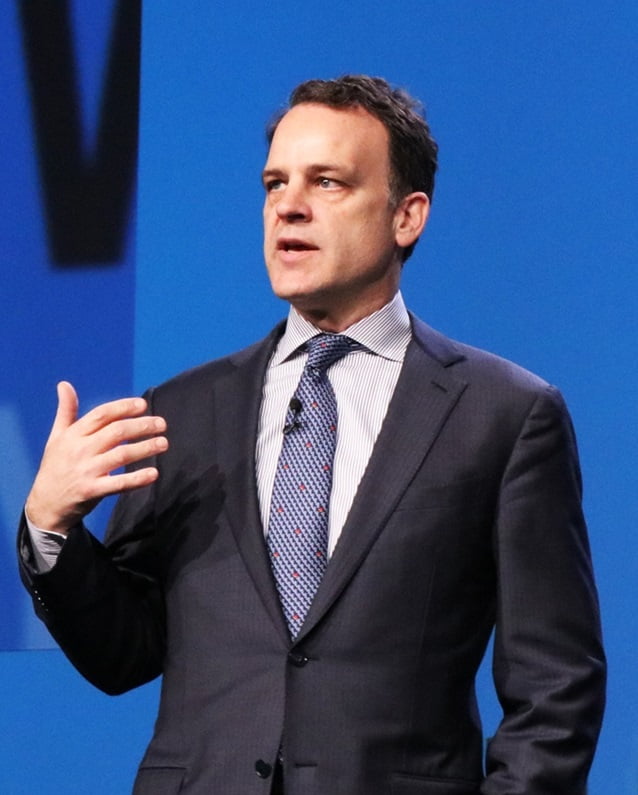CMHC’s Siddall Won’t Seek Another Term
One of Canada’s most vocal advocates for stricter mortgage rules has announced he will be stepping down at the end of this year.
Evan Siddall, who served as President and CEO of the Canada Mortgage and Housing Corporation (CMHC) since 2014, won’t be seeking another term once his ends, according to spokeswoman Audrey-Anne Coulombe.
“A selection process for a new President and CEO will start in the coming months,” Coulombe told Bloomberg. “This will be an open and transparent process that will be managed by the Government of Canada.”
Siddall oversaw a number of policy initiatives during his tenure that have been both cheered and jeered, the most high-profile being the introduction of new stress tests in 2016 and 2018.
The stress test for insured mortgages—those with less than 20% down payment—was introduced in October 2016 and significantly reduced the number of insured borrowers with high debt ratios. The more controversial stress test for uninsured mortgages (those with a down payment of 20% or more) came into effect in January 2018. This also reduced the number of highly leveraged borrowers at federally regulated lenders, forcing many to seek financing from non federally regulated institutions, like credit unions and private lenders.
The Department of Finance and the Office of the Superintendent of Financial Institutions (OSFI) ultimately implemented the rule changes, but Siddall was a strong and vocal proponent and advocated for such changes.
During his time at CMHC, the agency went from insuring 43% of outstanding residential mortgages in 2014, to just 29% in 2018, according to its annual report.
Other policy changes during his tenure included:
- An increase in default-insurance fees
- Changes that resulted in higher securitization costs
- The removal of a number of mortgage types from being eligible for insurance coverage (e.g., refinances, amortizations over 25 years, single-unit rental properties).
 The changes were polarizing, with many in the mortgage industry either very supportive or completely opposed. Despite the criticism, Siddall stood by them, arguing they were necessary to protect the stability of the country’s housing market and to rein in house price growth.
The changes were polarizing, with many in the mortgage industry either very supportive or completely opposed. Despite the criticism, Siddall stood by them, arguing they were necessary to protect the stability of the country’s housing market and to rein in house price growth.
“If you want a crash in a real estate market, feeding debt is exactly the way to make it happen, I’m telling you. I’m trying to preserve healthy markets, which you should want,” he said at the national mortgage conference in November.
“I don’t want you to think we’re opposed to homeownership. That’s just not the case. It’s like blood pressure, you can have too much of a good thing, we’re just trying to get that balance right.”
But Siddall hasn’t always been so diplomatic. He was regularly called out for his unabashed criticism of industry players, including accusing Mortgage Professionals Canada CEO Paul Taylor of “bold” self-interested rhetoric and “reckless myopia” when the association called for tweaks to the stress test.
He levelled similar criticism at those against tighter mortgage-lending rules in 2017 during testimony at the House of Commons Finance Committee, calling them “self-interested.” That drew a rebuke from Conservative MP Ron Liepert, who called Siddall “arrogant.”
Siddall as Bank of Canada Governor?
Just as Siddall is in the home stretch of his term at CMHC, so to is current Bank of Canada Governor Stephen Poloz, who will be ending his seven-year term in June.
Siddall’s name has been floated as a potential, yet unlikely, candidate given his extensive experience in financial markets as a former Goldman Sachs investment banker, as well as a stint at the Bank of Canada starting in 2010. Siddall joined the Bank at the request of former BoC Governor Mark Carney, where he spearheaded the Bank’s efforts in establishing financial infrastructure to guard against systemic risks. His involvement with the Bank following the financial crisis may also help explain his bias towards credit tightening.
“Deflating asset-price bubbles and curbing the propensity of Canadian households to borrow has become almost as important as setting interest rates at the Bank of Canada,” reads a recent Financial Post column, which noted Siddall has emerged as “the leading defender of tighter mortgage rules.”
Love him or hate him, Siddall is always clear on where he stands, and stands by what he believes. But the public nature of his role at CMHC exposed him to intense public scrutiny, regardless of the policies being implemented. It awaits to be seen who will jump at the opportunity to fill his shoes.